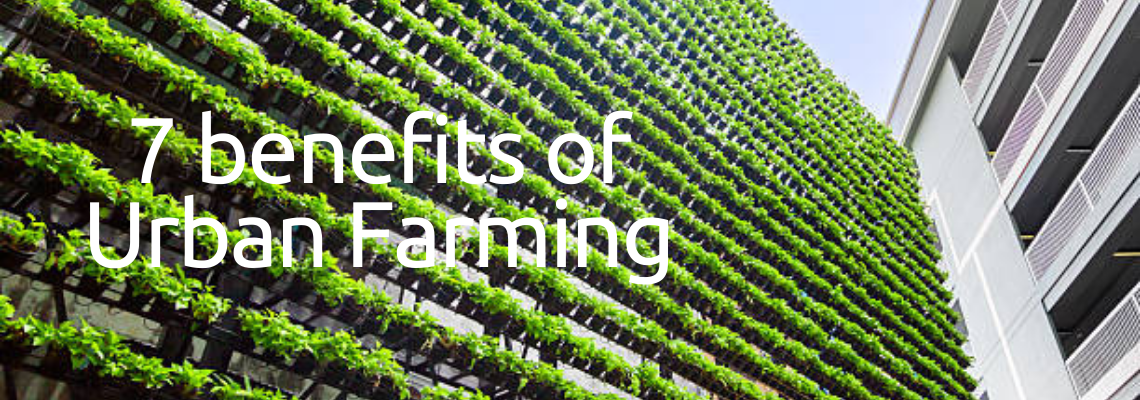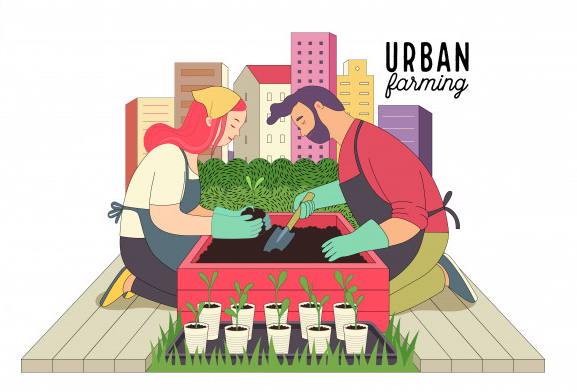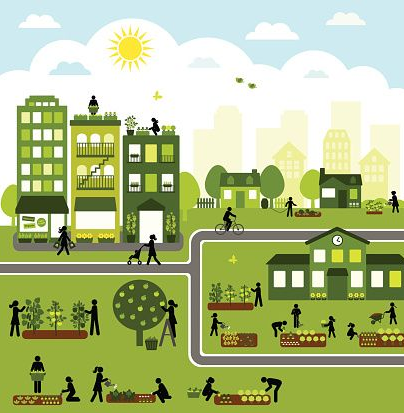
First off, what is Urban Farming?
Urban farming is growing or producing food in a city or heavily populated town or municipality.
Urban farming is often confused with community gardening, homesteading, or subsistence farming. Urban farming, however, focuses more on growing produce to be sold as opposed to being grown for personal consumption or sharing. Urban farming can support the well-being of individuals and communities in many ways. From providing fresh produce to communities, creating a sense of community belonging, job-creation, and promoting healthy lifestyles.
Did you know that over 20% of the food in the world is produced by urban farms?
There are various different types of urban farming like hydroponic farming, mushroom farming, beekeeping, urban chicken farms, growing flowers, cannabis farming, and organic farming to name a few.
 |
 |
So what are some of the benefits of urban farming?
1. You will learn the ability to farm
Urban farming helps you get educated about growing food. It is a unique skill to have in today’s world. You will also be able to educate your children about sustainable food and the health benefits.
2. Growing food in limited space
You do not need a lot of space to grow your own produce. There are techniques like vertical gardening, container gardening, rooftop gardening, and hydroponic gardening that utilize space well.
Urban farming helps you make the best use of space while growing all the produce that you want.
3. Help boost the local economy
As more grocers, restaurants, schools, and institutions seek out sources of local food, there is an opportunity for small businesses and food entrepreneurs to explore urban farming as a new market in which to start or expand their business. This in turn creates more employment opportunities for local residents. As the local economic activity rises, money circulates within the city and strengthens communities.
4. Create edible landscapes
Urban farming is a perfect solution for vacant and underutilized lots of land that are scattered throughout cities, and many projects make efficient use of rooftop space. Community gardens and raised beds instantly transform spaces into more vibrant and edible landscapes and give individuals an opportunity to take stewardship of common land and become more involved in their communities.
5. Promote healthy communities
Urban farming increases access to affordable, healthy, fresh produce and provides a unique opportunity for communities to learn about nutrition and how to grow food.
6. Reduce environmental impact
Localized food production can be one effective way to reduce the environmental impact of agriculture. Food grown locally travels significantly less distance from the farm to your fork, thus eliminating unnecessary food travel time. Urban farmers also often adopt more environmentally-friendly growing practices, using fewer pesticides and chemical fertilizers.
7. Increase food security
Urban farming can help alleviate some of the pressures of food insecurity by making a source of nutritious food available for nearby urban residents. All these reasons and more should compel us to scale up food production in towns in cities.
“Agriculture is our wisest pursuit because it will, in the end, contribute most to real wealth, good morals, and happiness.” — Thomas Jefferson
To view more Articles, please visit our Leads 2 Business Blog.
If you are interested in becoming one of our subscribers, please visit Leads 2 Business.
To view notes with screenshots on how to use our website, please visit Leads 2 Business Wiki.
About Melanie Miles
One girl who would rather wear boots than high heels...
- Web |
- More Posts(62)

